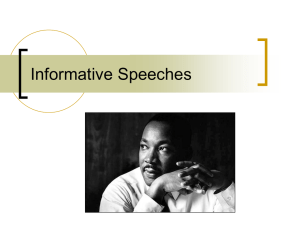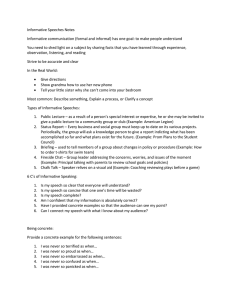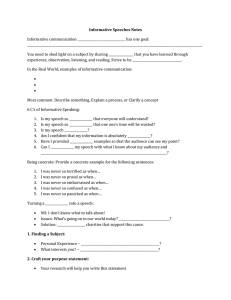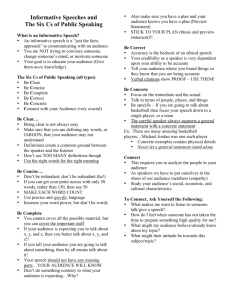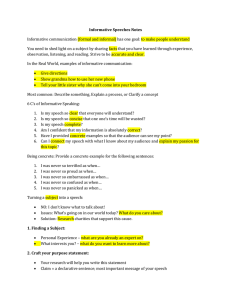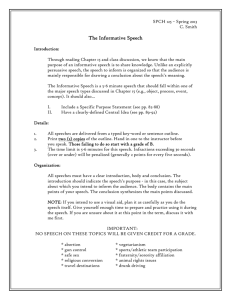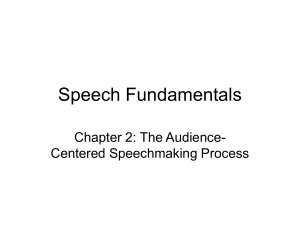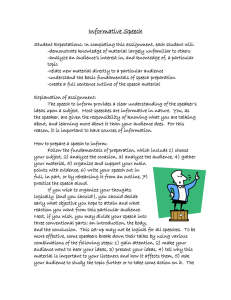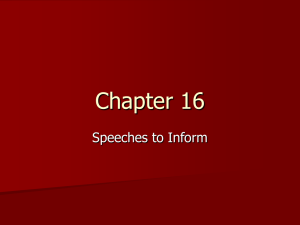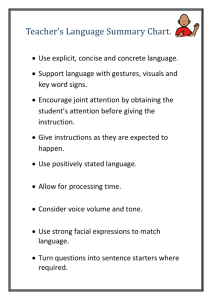Informational Speeches
advertisement
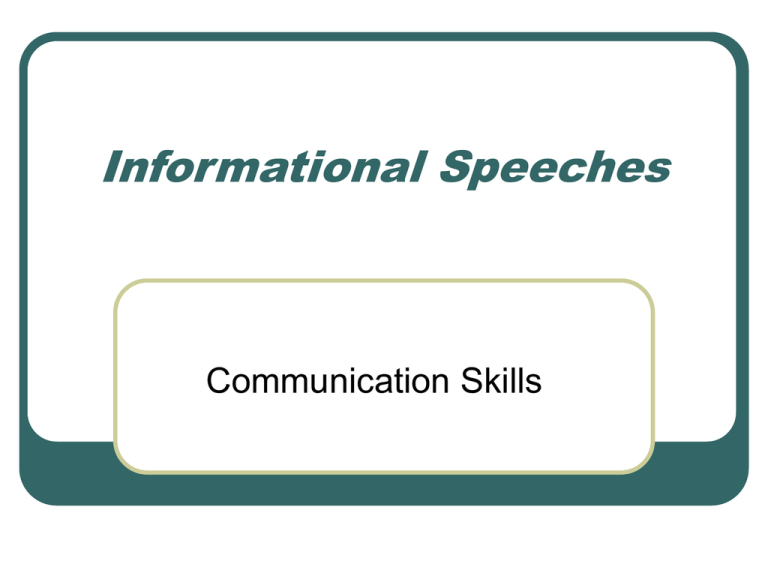
Informational Speeches Communication Skills Informative Speeches Describe an object Explain a process Clarify a concept You are giving information on a specific topic! The Six Cs of Informative Speaking Be clear Be concise Be complete Be correct Be concrete Connect Be Clear Know your audience! Define terms: define important terms (but not if they are common knowledge). Make distinctions: tell what something is and is not. Avoid being ambiguous. Be Concise Avoid redundancy Use precise language: choose the word that best fits your meaning Use specific language: don’t use a broad term (“tree”) if you can use a more specific one (“oak”) Be Complete Understand that you can’t cover all of the material! Create a sense of completion for the audience. Keep it organized! Present your three main points in the order you list them in your thesis! Be Correct Do your research! Know your subject! Check and double-check the accuracy of the information you present. Tell where you found your information (“According to ___” or “A survey by BYU research institute found…”) Be Concrete Focus on the immediate and the actual. Use real people, places, and things – real examples. Try to make the information REAL for your listeners. Connect Analyze your audience. Imagine how the world looks to someone else (i.e., your audience). Consider what your audience knows and doesn’t know.
